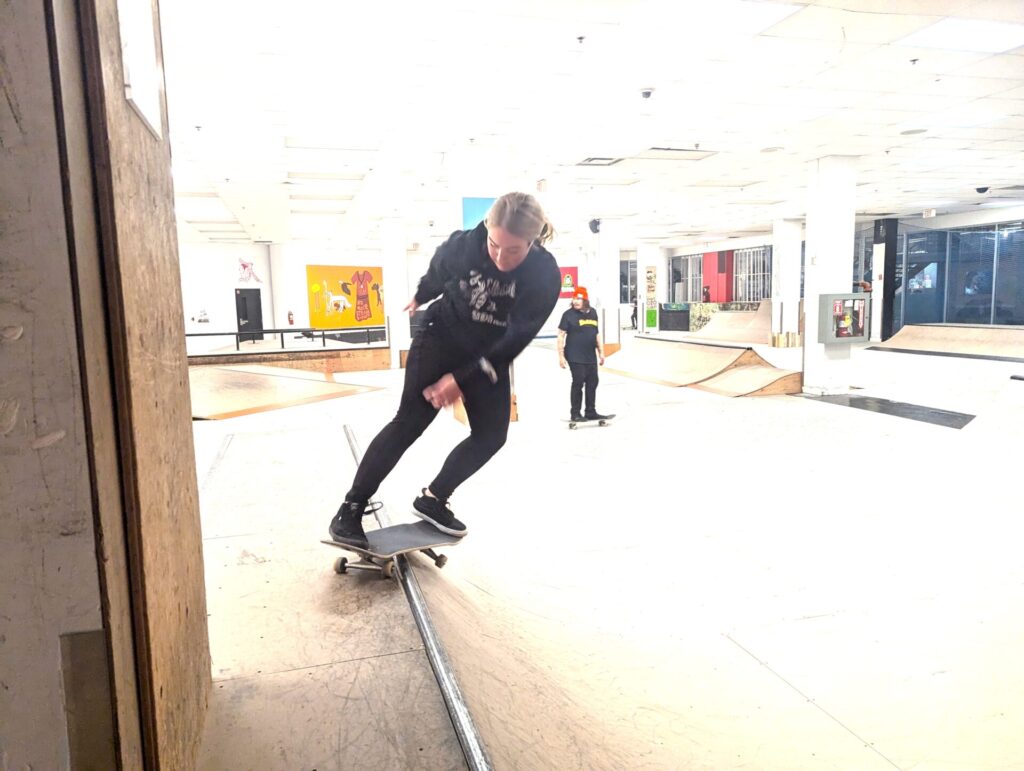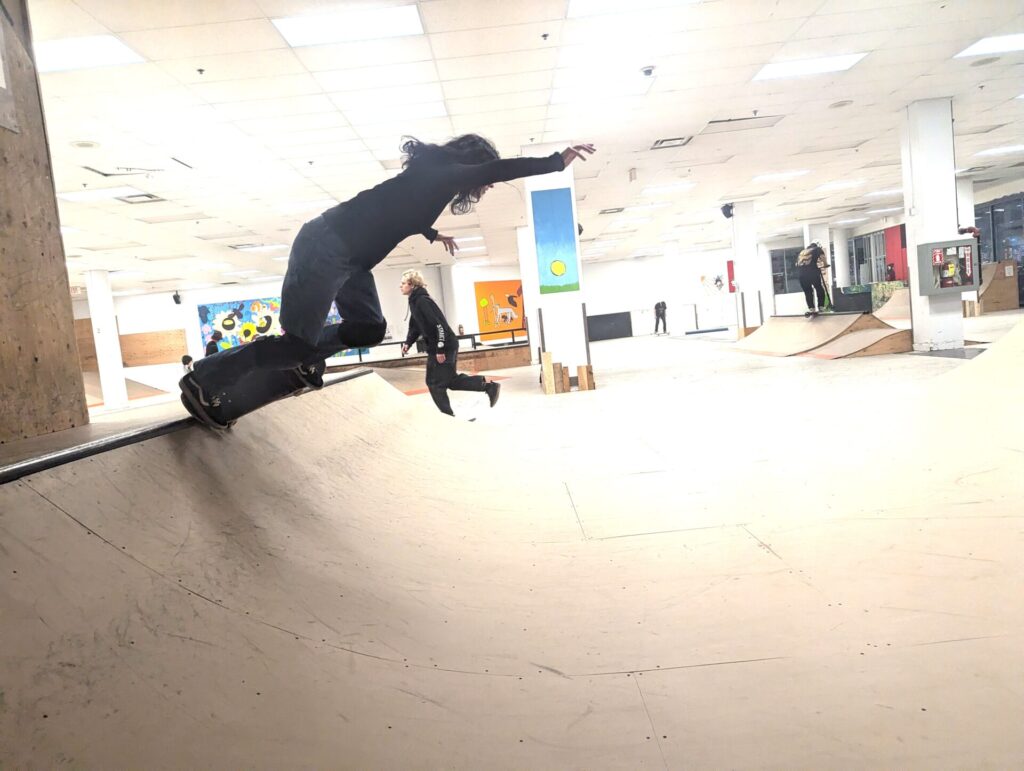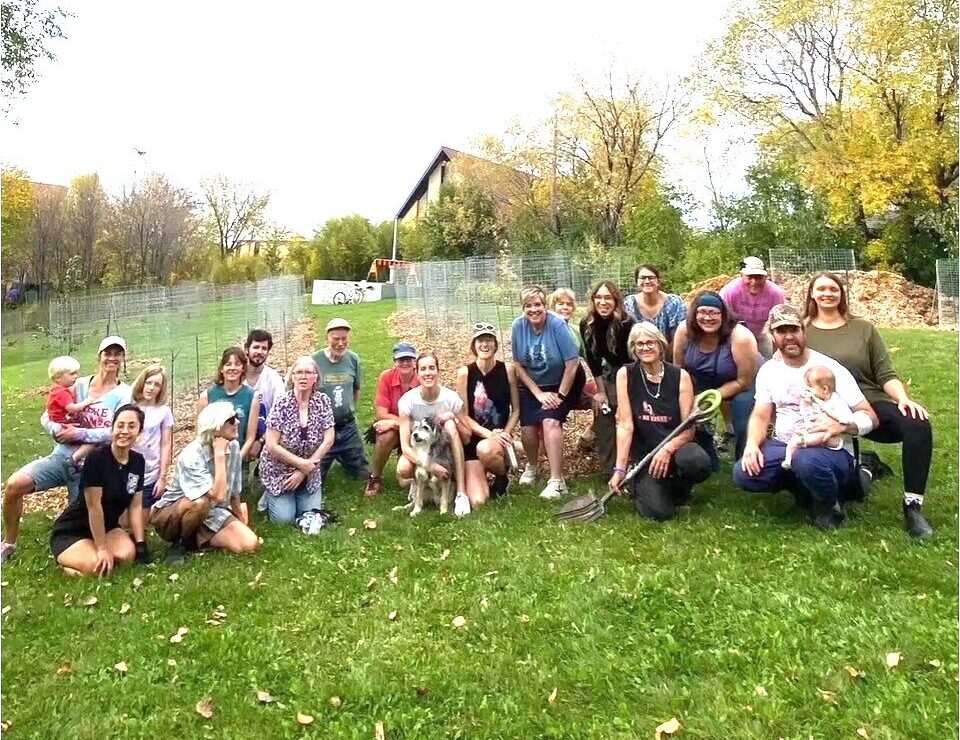
On any given evening, people commuting down Portage Ave. can see participants through the floor to ceiling windows of Pitikwe Skatepark.
One of which is Pitikwé’s director, Mike Coffey, who has been honing his skills for 27 on the streets of downtown Winnipeg.
On Nov. 15th, it celebrated its first year of welcoming skaters to the lower floor of Portage Place Mall. Within the park, one could see people as young as six years old, doing tricks or just moving around on the park’s ramps, half-pipes, rails and pads.
Throughout Coffey’s years of skateboarding has seen the deeply talented skateboarding scene within Winnipeg, attracting not just skaters but a broader culture of photographers, designers, and filmmakers.
“There was a dire need for this in the city for a long time,” Coffey says. “I didn’t grow up with this in Winnipeg. We didn’t have an indoor space open seven days a week during the winter months. Before we only have one skateboard park open once a week. So, you sat out in the cold in hope that they weren’t at the 40 person capacity.”
Pitikwé’s philosophy is driven by the community, emphasizing creativity and inclusion within the space. The space was created by Manitoba Skateboarding Commission, who formed in response to the banning of 2SLQBTQIA+ material in Winnipeg’s only other indoor skate park.
Coffey says the majority of the skate park’s users are Indigenous youth, ranging in skill level from beginners to advanced.
“This place is a safe haven for our downtown community,” Coffey says. “We are a non-profit, community-led, inclusive skate park.”
Pitikwé’s focus on inclusivity even extends to the equipment allowed in the space, inviting skateboards, scooters, and BMX bikes. As Coffey says, “all wheels are welcome.”
“A lot of the youth that visit here are in dire need of things like physical exercise and a strong community,” Coffey says. “Skateboarders look out for each other, always have. So, they get [community] here and it can change their trajectory in life … It did for me. I skateboarded outside these walls and it kept me out of all sorts of trouble.”
Coffey says that there is little precedence for the skate park, as few similar spaces exist in Canada. This means that operating the skate park is largely a process of learning.
“We’re figuring it out on the fly here with the goal of having a space that’s safe for our downtown community and our downtown’s most vulnerable,” Coffey says.
This month, Pitikwé has started free lessons for Indigenous youth, in conjunction with Manitoba Aboriginal Sports and Recreation Council, which will be going up until Christmas.
For those looking to skate, admission to Pitikwé is $3 for individuals 12 and under, $5 for 13 to 25, and $10 for everyone 25 and up.


